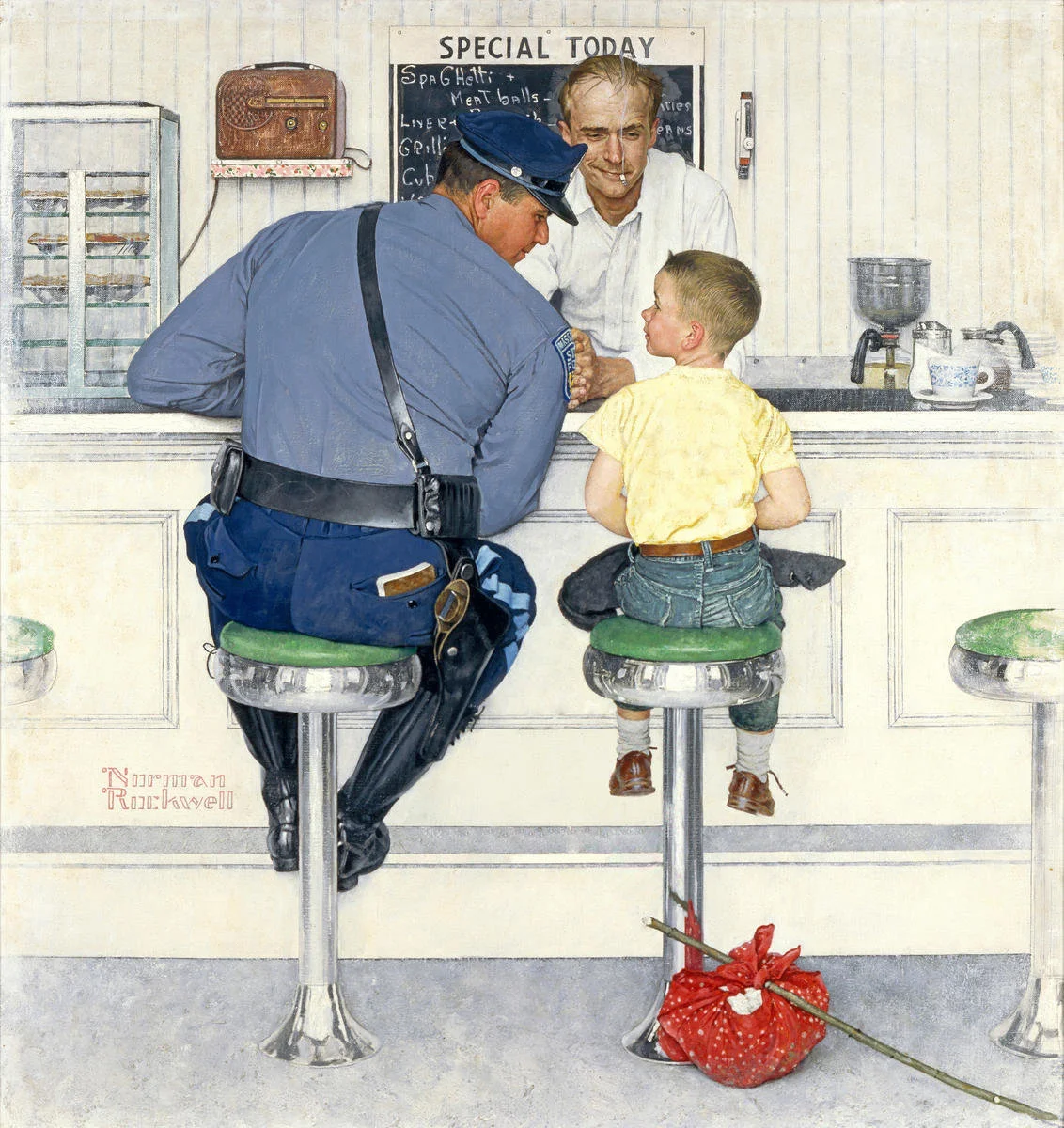Former Police Chief Charged After Controversial Newspaper Raid
Sherman Smith
Summary
A Kansas judge ruled that former Police Chief Gideon Cody likely committed a felony by inducing a witness to delete text messages following his 2023 raid on the Marion County Record. While Cody faces a February trial for interference with the judicial process, newspaper publisher Eric Meyer expressed frustration that law enforcement remains unpunished for the widely condemned raids themselves.
But Cody won’t be tried for the raids, which Marion County Record editor-publisher Eric Meyer says is the real crime.
A two-hour preliminary hearing revealed new details about the texts that Cody exchanged with Kari Newell, whose drunk driving record and request for a liquor license at her restaurant ignited an international drama two years ago. Newell took the stand and testified that Cody told her during a phone call to delete text messages between the two of them so that people wouldn’t get the wrong idea about whether they were romantically involved.
“Chief Cody had stated that he felt it would be in my best interest to delete those,” Newell said.
About six weeks after the raids, Newell texted Cody to say she was concerned about having deleted their earlier messages, she said. Cody replied that she was being paranoid.
Their exchange coincided with widespread scrutiny of the police raids in August 2023 of the newspaper office in flagrant disregard for the First Amendment and legal protections for journalists. Kansas Reflector first reported on the chilling raids.
Cody, working in coordination with the sheriff’s office, county attorney and Kansas Bureau of Investigation, had investigated whether Meyer and reporter Phyllis Zorn committed identity theft and other crimes by looking up Newell’s driving record in a public online database. A magistrate judge, ignoring the absence of evidence and state law, authorized the police raids of the newspaper office, Meyer’s home, and the home of city Councilwoman Ruth Herbel. Meyer’s 98-year-old mother died in distress a day later.
Police exceeded the scope of the search warrants by seizing reporters’ personal cellphones, work computers, and other equipment. Video showed Cody reviewing a reporter’s file on allegations that had been made against him.
At the KBI’s request, the Colorado Bureau of Investigation conducted a yearlong inquiry into whether Cody or anyone else had committed a crime. Special prosecutors Marc Bennett, of Sedgwick County, and Barry Wilkerson, of Riley County, cleared all law enforcement of any wrongdoing in carrying out the raids, which spawned five ongoing federal lawsuits.
However, CBI special agent John Zamora learned from talking to Newell that she had deleted text messages at his request, spanning a period of one week before to one week after the raids.
The prosecutors presented an exhibit at Wednesday’s preliminary hearing that totaled 31 pages of text messages, including one where Cody said he was working with a publisher to write a book about the experience.
Zamora testified that he interviewed Newell in person in December 2023.
“Just tell me what’s happening,” he recalled telling her. “What’s going on here?”
Newell told him she agreed to delete texts, at Cody’s request, because she was worried that her now ex-husband would accuse her of having an affair with Cody, Zamora said.
Wilkerson asked Zamora, who has 30 years of law enforcement experience, if he had ever directed a witness to delete messages or documents.
“No,” Zamora said.
After talking to Newell, Zamora said, he obtained the deleted text messages from Jennifer Hill, the attorney who is defending the city and county from federal lawsuits over the raid. Cody, who had given her his cellphone, had not deleted the text messages himself.
Cody’s attorney, Sal Intagliata, of Wichita, cross-examined Zamora about his investigation. According to Intagliata, the special agent told Hill that he was just trying to “check all the boxes.” Zamora said he didn’t remember making the comment.
When Newell took the stand, she said she has had no communication with Cody since leaving town amid the controversy two years ago.
Zorn and Meyer sat front and center in the courtroom, with Zorn tightlipped and taking notes and Meyer in an incredulous slouch, newspaper tucked in his pants pocket.
Cody, who now lives in Hawaii, appeared by Zoom. He sat expressionless with his chin on his hand for most of the hearing.
District Judge Ryan Rosauer rejected Intagliata’s argument that it was “a legal impossibility” to blame Cody for deleting texts that he ultimately turned over himself. The judge found probable cause that Cody had committed the low-level felony crime of interfering with the judicial process by inducing a witness to withhold information in a criminal investigation.
Cody entered a not guilty plea, and Rosauer scheduled a trial for February.
If convicted, because he has no criminal history, Cody’s sentence would be presumptive probation.
In an interview after the hearing, Meyer said he was worried about the “big picture.”
“None of this has anything to do with the crime,” Meyer said, referring to the raids on his newsroom and home.
“This is not even about the case,” Meyer said. “This is about what he did after the case.”
He also said he was concerned that Cody was being made a scapegoat for the raids, despite the widespread involvement of other people and law enforcement agencies.
“We still want some statement, an official judgment of the court, that this was wrong, so that no one can use this excuse anymore that, ‘Oh, we aren’t sure that it’s illegal to raid newsrooms, and because we’re not completely sure, we can still do it,’ which seems like a stupid excuse to me,” Meyer said.
